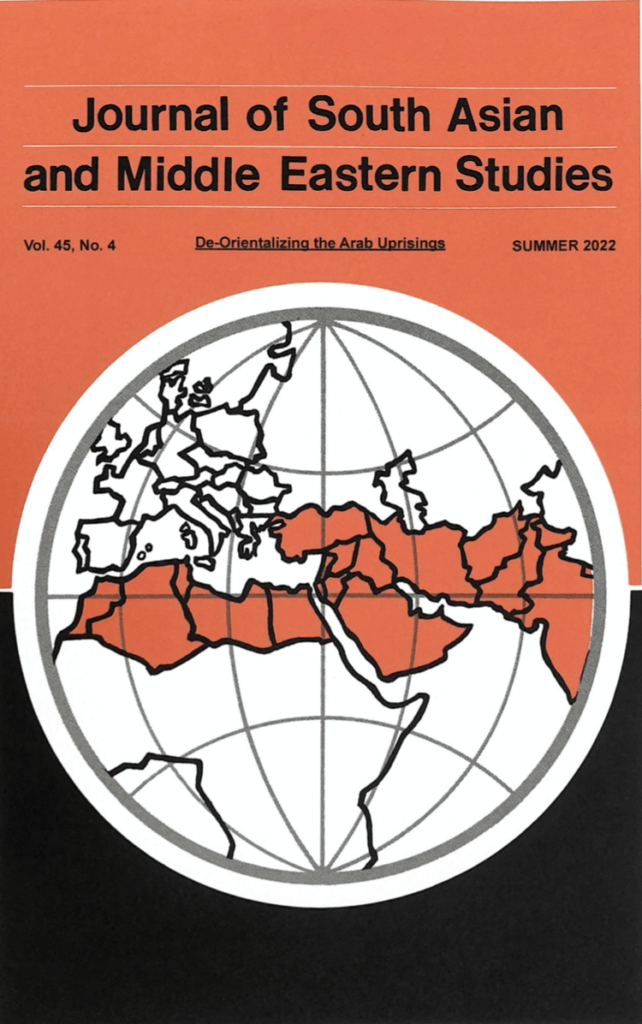Saliba Sarsar, Ph.D., professor of political science, has edited a special issue of the “Journal of South Asian and Middle East Studies” with Professor Omar Bortolazzi of the American University in Dubai. Titled “De-Orientalizing the Arab Uprisings,” the 138-page issue presents an introduction and six articles covering topics that range from Arab youth and the quest for democracy to the geopolitics of women’s rights in post-2011 Tunisia, the people’s revolution in Egypt, and the pandemonium in Yemen.
In his own chapter, “Arab Authoritarianism, Arab Uprisings, and the Future,” Sarsar analyzes the nature and root causes of the Arab uprisings. Among them are economic stagnation (e.g., poverty and youth unemployment), authoritarianism, and political corruption. He writes: “The Arab uprisings have changed Arab countries by resetting the political space and the relationships between rulers and ruled. While authoritarians have perfected their modus operandi or tools for neutralizing their critics or opponents, citizens have come to understand their power but also its limitations in effecting desired political change.”
Sarsar calls for politico-economic reforms to curb inequality, limit the negative effects of authoritarian rule, and promote good governance in the Middle East and North Africa region. He argues that social unrest will continue recurring as long as Arab leaders are unable to establish a new social contract with their citizens and address the deep causes of people’s discontent.

